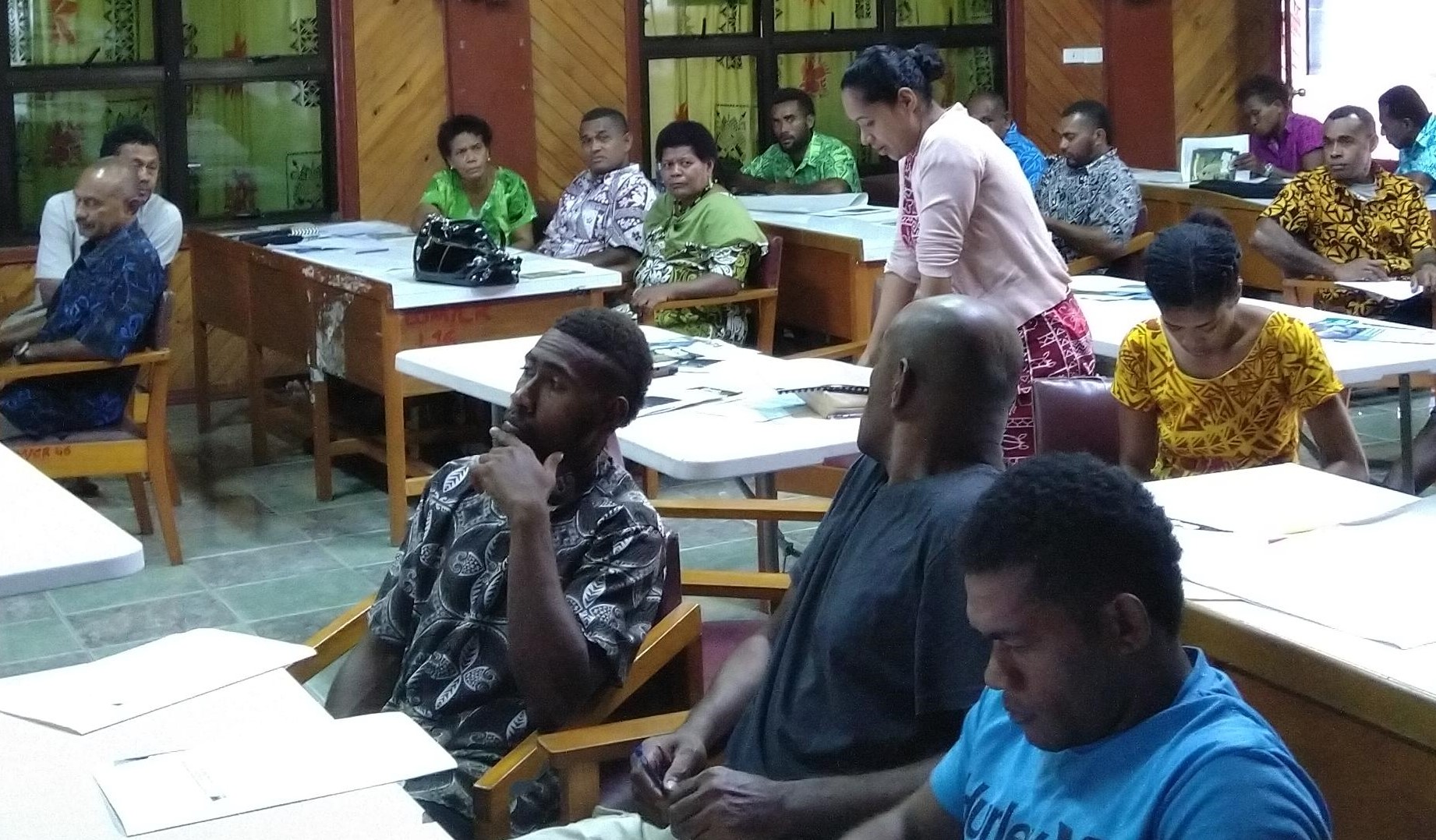The village headman of Nauono on the island of Ovalau, locally known as Ipa, believes he and the residents of his village are responsible for creating sustainable fisheries resources for their children’s future.
During a fisheries management training in May 2019 on Ovalau, Ipa conveyed this strong sentiment as he spoke to village representatives and the team from Wildlife Conservation Society (WCS) about the importance of the sea.

Through collaborative implementation of fisheries management tools, he hopes that the island of Ovalau will be able to safeguard resources for the future generation to access.
Therefore, to obtain a better understanding of fisheries management tools, representatives from the districts of Bureta, Lovoni Nasinu and Levuka attended the 3-day workshop on the island which was supported by the Lomaiviti Provincial Council and Ministry of Fisheries. The workshop was also an opportunity for the village representatives to share their views on a way forward to preserving the marine resources of the island.
Size limits and spawning aggregation, fisheries closure design and tabu area (fisheries closures) management for sustainable harvest were among the tools discussed. They were further explained about the national restrictions on fishing gears, sustainable fishing practices, licensing and good land-use practices that could help reduce the decline of their local fisheries.
Importantly, WCS team worked with the village representatives from Ovalau to use a fisheries diagnostic tool, to garner their perceptions of the health of their surrounding marine habitats, fisheries stock (finfish and non-finfish), resource units of concern, management regimes currently in place, and current threats to fisheries resources.
The village representatives discussed broadly collaborative methods to manage local threats to fisheries which included avoidance of harvests of small sized fishes, unsustainable fishing gears and practices, unnecessary littering, excessive logging near streams, animal farming near streams etc. To ensure active engagement from participants, several activities were conducted such as question and answer session on species and their home ranges and designing management tools such as tabu for their areas.
The village representatives were happy to learn about the benefits that these tools had for them and discussed each one thoroughly, so that they could choose the best fisheries management tools for their communities.
Thus they will return to their villages to discuss these tools with their village chiefs. To get feedback and implementation plans for the fisheries management tools from the communities, WCS will conduct a follow up meeting. This will also suggest if the communities are willing to integrate these tools in their currently ongoing ecosystem-based management plans.
The training was conducted through the guidelines from the ‘Facilitators Guide to Community-based Fisheries Management’ was put together by Rebecca Weeks (James Cook University) and Stacy Jupiter (WCS) with guidance from the Fiji Locally-Managed Marine Area Network, Ministry of Fisheries, University of the South Pacific, World Wide Fund for Nature, and cChange.
The workshop was generously funded by David and Lucile Packard Foundation, John D. and Catherine T. MacArthur Foundation.